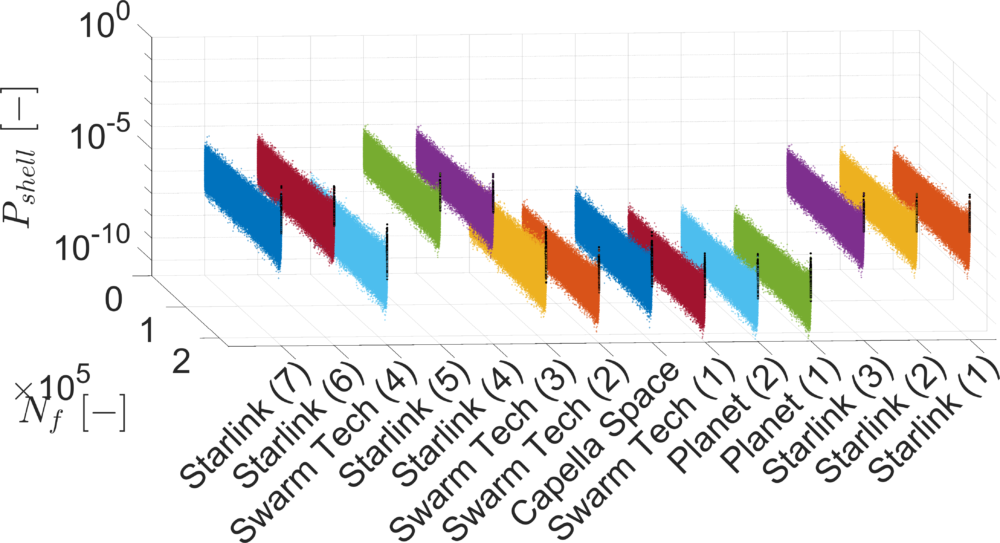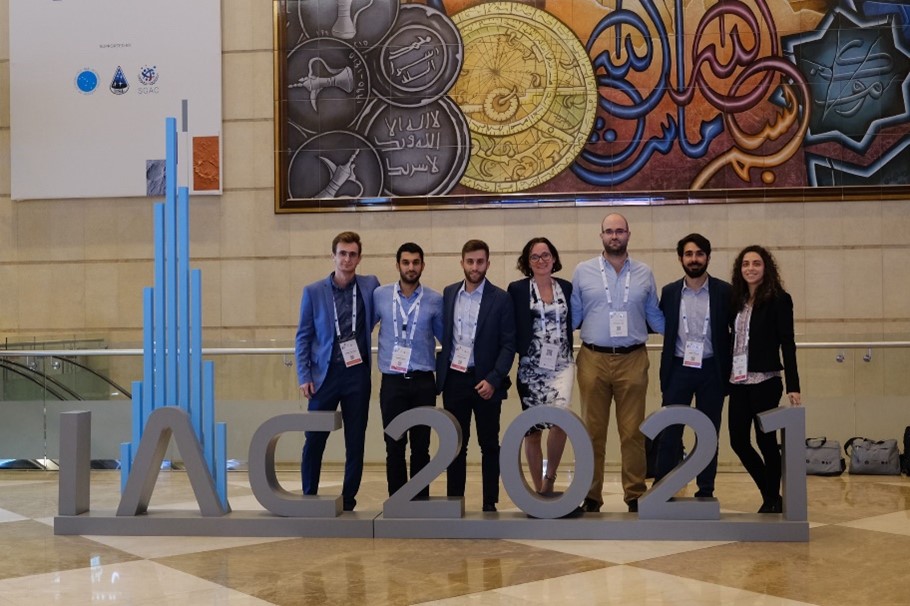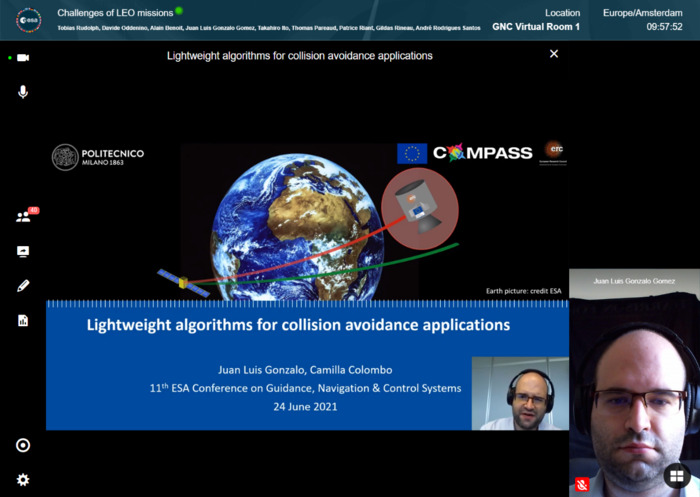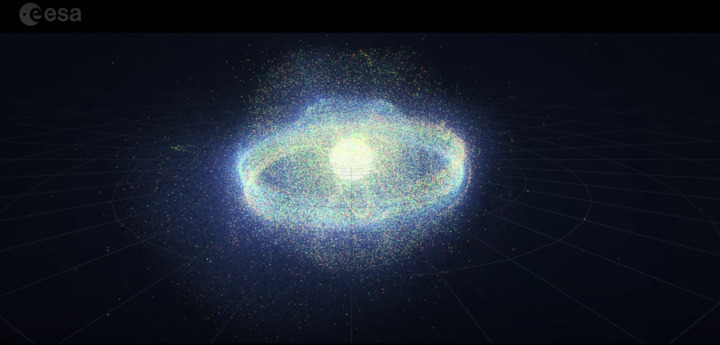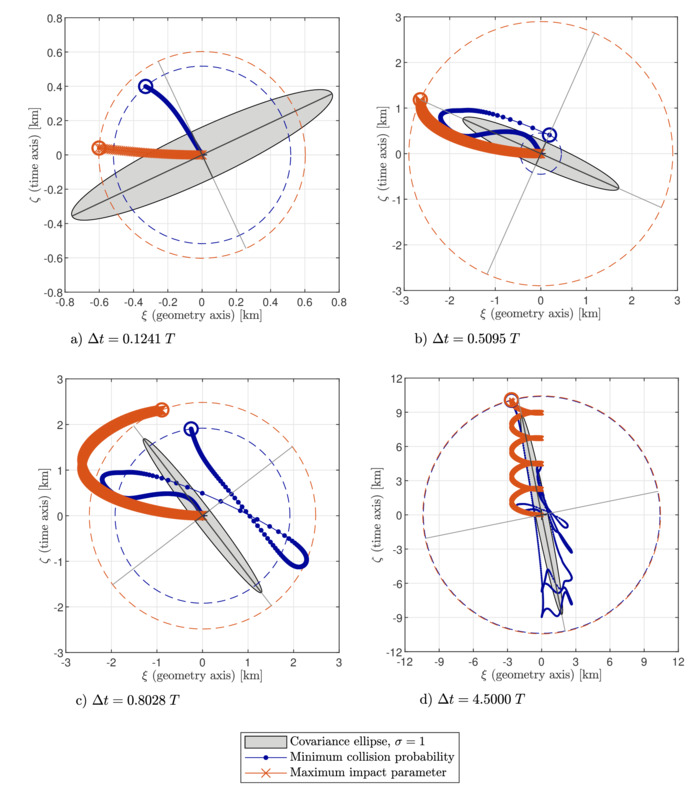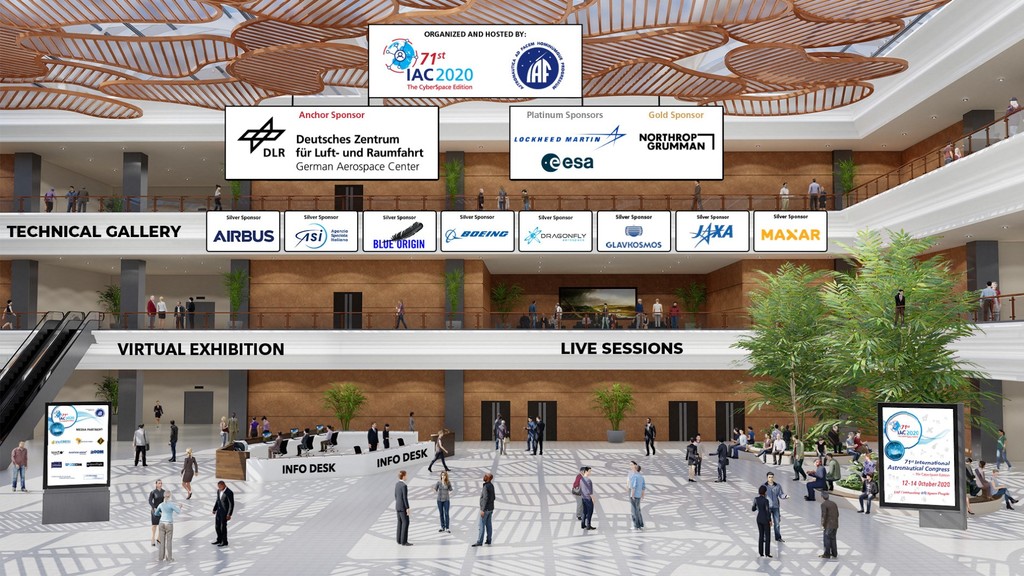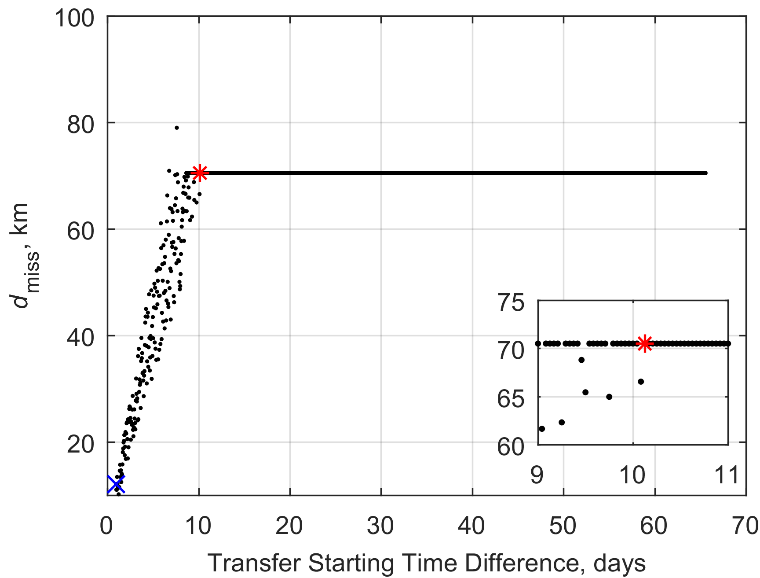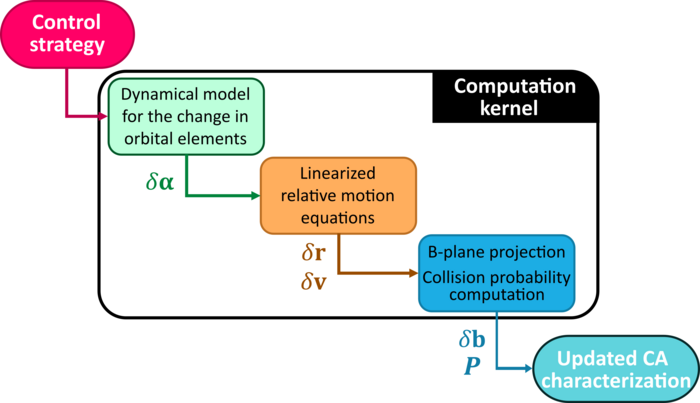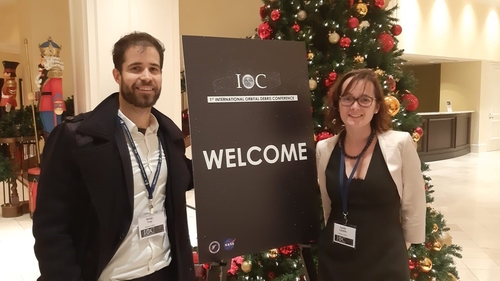A new analytical model to evaluate collision probability with large satellite constellations
In a space environment with an ever-growing satellite population, the latest paper by Eduardo Polli, Juan Luis Gonzalo and Camilla Colombo eases studies in the context of Space Situational Awareness, by developing an algorithm capable of assessing the average collision probability between an object subjected to continuous tangential thrust, and tens of thousands of constellations’ satellites, all within milli-seconds. Available here.

